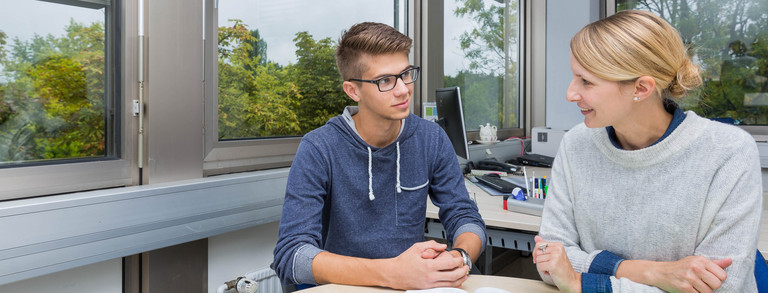Prospective Students
Please confirm video activation.
After activation, cookies will be set and data is sent to YouTube (Google).
To the Google Privacy Policy
Background: Urban Transformation
Urban areas in advanced economies face major spatial challenges with a long lasting impact on cities. The drivers for urban transformation are manifold and include technological changes and digitalization, migration and demographic shifts, climate change, increasing relevance of agglomeration economies as well as post- and re-industrialization.
Spatial implications of structural change and the organization of such transformation demand for deliberate strategies to revitalize the traditional manufacturing cores. These include a wide range of new forms of interventions such as social innovation, governance, resilience, urban laboratories and urban strategy.
Why Department of Spatial Planning?
Given the geographical location in Ruhr, the master program ‘Urban Transformation’ benefits from the extensive experience in the region. The Ruhr became a touted model for transition regions and serves as a laboratory with excellent opportunities to learn about the challenges as well as strategies of transforming and revitalizing post-industrial locations. The IBA Emscher Park strategy (1989-1999) is known worldwide as a particular innovative planning practice. The unique strategy of re-imaging and revitalizing the industrial landscape has raised considerable interest among planners and policy makers.
The spatial implications of structural change and the transformation of the Ruhr have always influenced academic debates as well as research at our Department. Complementing the local experience, international examples are also integrated into the program. These enable our students to identify similarities as well as differences on a local, national and global scale.
Aim of the Master's Program
The one-year M.Sc. program at Department of Spatial Planning aims to attract highly qualified students, wishing to learn more about innovative strategies to transform cities and regions at a location offering brilliant in situ conditions to understand the complexity of governance and planning. The program builds upon a bachelor program in spatial planning, as established at our department. The philosophy of the Master program is based on the understanding of planning as a multi-disciplinary discipline. The courses and projects in the program seek to bridge international theories of structural change and spatial transformation with the practice of governance in cities and regions.
Outline of the Master's Program
Lecture - ungraded essay (2 CP)
Ruhrlecture: discussing urban transformation theories on a global perspective with international guests
Research Colloquium - graded presentation and term paper (6 CP)
Ruhrseminar: discussing structural change and spatial development in advanced urban economies.
Selection of 1 graded Master Project or Urban Design Studio (12 CP) with up to five other students.
Selection of 1 double Seminar (10 CP) and 2 graded seminars (5 CP each).
Seminar titles are (the titles change from semester to semester, with the exception of few, and to include important current topics.):
- European experiences in transformation processes
- Post-industrial regions as laboratories of structural change
- Strategic urban development in shrinking cities and regions
- Legacy cities in the Northern Hemisphere
- Temporary Land Use
- Topics in Urban Economics
- Smart Cities
Master’s Thesis (20 CP)
Find out more about the outline of the Master's program and the offered seminars
Find out more about the outline of the Master's program and the offered seminars at our Department in the Module Handbook.


